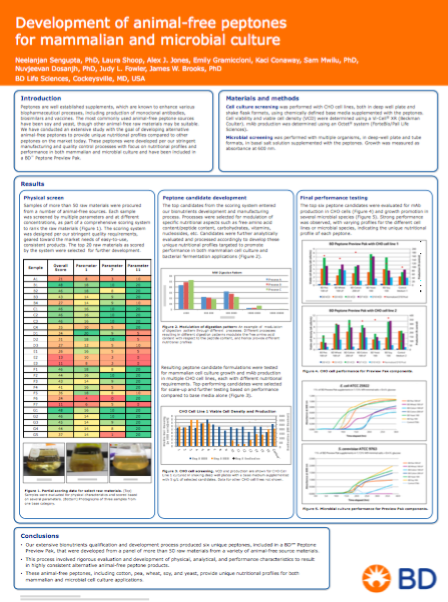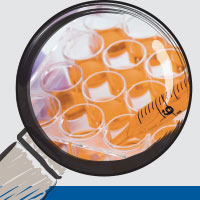
Development of Animal-free Peptones for Mammalian and Microbial Culture
Cell culture media optimization continues to play a critical role in both increasing titers and providing a mechanism for modifying protein quality. One way to optimize media is to include supplements that improve productivity or protein characteristics. As a result, there is an interest in developing novel animal-free supplements that can impact these processes for both mammalian and microbial culture. It is important to note that supplements chosen to enhance media can have dramatic effects, both positively and negatively, on productivity, growth and protein quality. This highlights the importance of understanding what the drivers of the cell culture process are in order to identify appropriate supplements.
While at Boston Biotech Week, I found a poster that addresses the development of novel animal-free supplements for culture optimization. The poster, presented by BD Life Sciences, titled, “Development of Animal-free Peptones for Mammalian and Microbial Culture,” covers the steps involved in the development of novel animal-free peptones for use in biomanufacturing.
The poster begins with a description of peptones. Peptones are a type of media supplement that have been shown to improve cell culture of biopharmaceuticals. They have successfully been used to improve the production of monoclonal antibodies, biosimilars and vaccines for many years. Animal-free peptones have mostly been soy and yeast sourced, though there have been other raw material sources.
BD Life Sciences conducted a study in an effort to develop alternative animal-free peptone sources. Their goal was to develop supplements with unique nutritional profiles compared to what is currently available on the market. These new peptones were developed under strict manufacturing and quality control processes and were selected to be included in a BD™ Peptone Preview Pak based on their nutritional profiles and performance in mammalian and microbial culture.
BD Life Sciences began by procuring samples of more than 50 raw materials from different animal-free sources. Each sample was screened by multiple parameters and at different concentrations, as part of a comprehensive scoring system to rank the raw materials based on quality and consistency requirements. Based on the scoring system, they selected the top 20 raw materials for further development.
Peptone Candidate Development
BD then took these top 20 candidates and put them through their bionutrients development and manufacturing process. Processes were selected for modulation of specific nutritional aspects such as free amino acid content/peptide content, carbohydrates, vitamins, nucleosides, etc. Candidates were further analytically evaluated and processed accordingly to develop unique nutritional profiles targeted to promote performance in both mammalian and bacterial fermentation applications.
Cell Culture Testing
The candidate peptones were tested for mammalian cell culture growth and mAb production in multiple CHO cell lines, each with different nutritional requirements. CHO based cell culture screening was conducted in deep well plates and shake flasks. Chemically defined base media was used and supplemented with the peptones being tested. Cell viability and viable cell density were examined using a Vi-Cell XR from Beckman Coulter. Monoclonal antibody production was also looked at using an Octet system from Pall Life Sciences. Top-performing candidates were selected for scale-up and further testing based on performance compared to base media alone.
Microbial Culture Testing
Multiple organisms were used in the microbial screening, which took place in deep-well plates and tube formats using a basal salt solution supplemented with the peptones being tested. Growth was measured as absorbance at 600 nm.
Final Performance Evaluation
The top six peptone candidates were evaluated for growth and mAb production in CHO cells (Figure 1) and growth promotion in several microbial species (Figure 2). Strong performance was observed, with varying profiles for the different cell lines or microbial species, indicating the unique nutritional profile of each peptone.
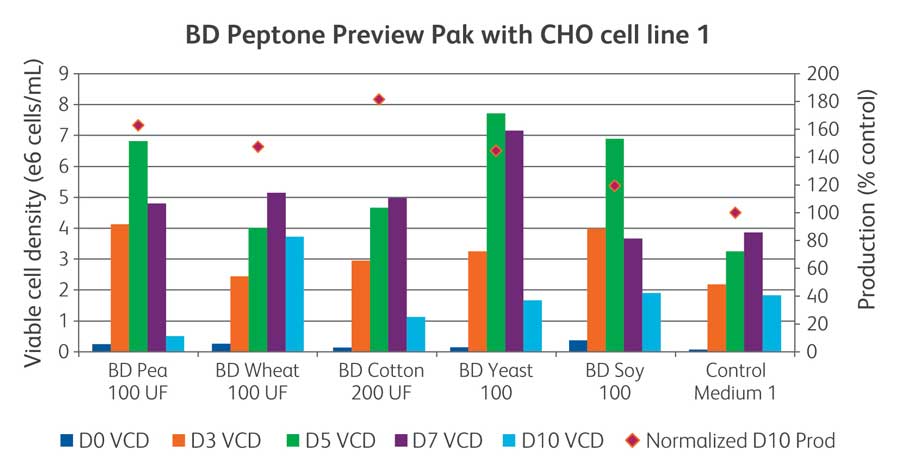
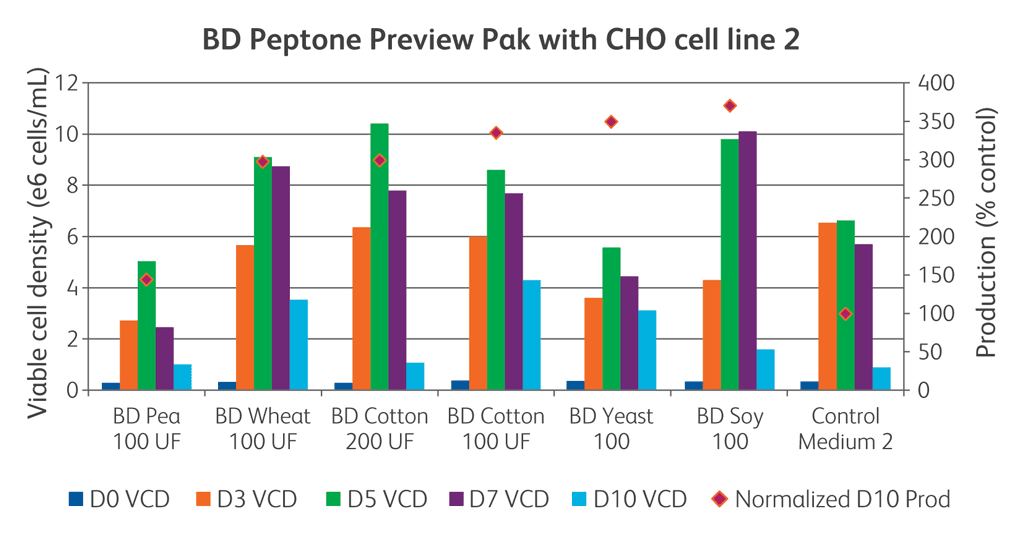
Figure 1: CHO cell performance for Preview Pak Components
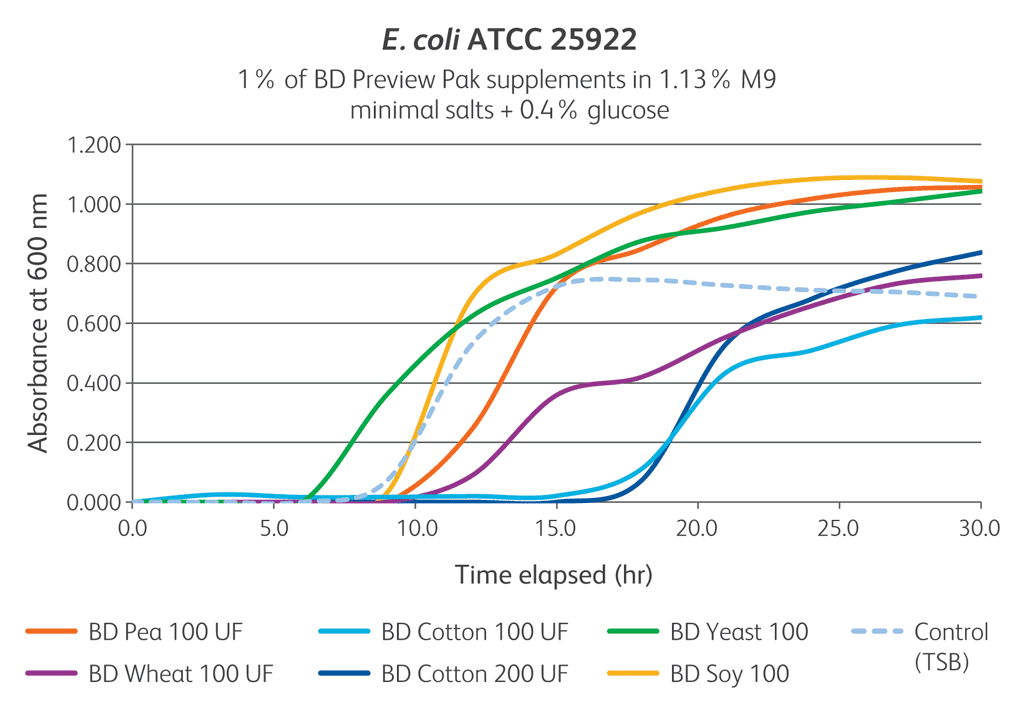
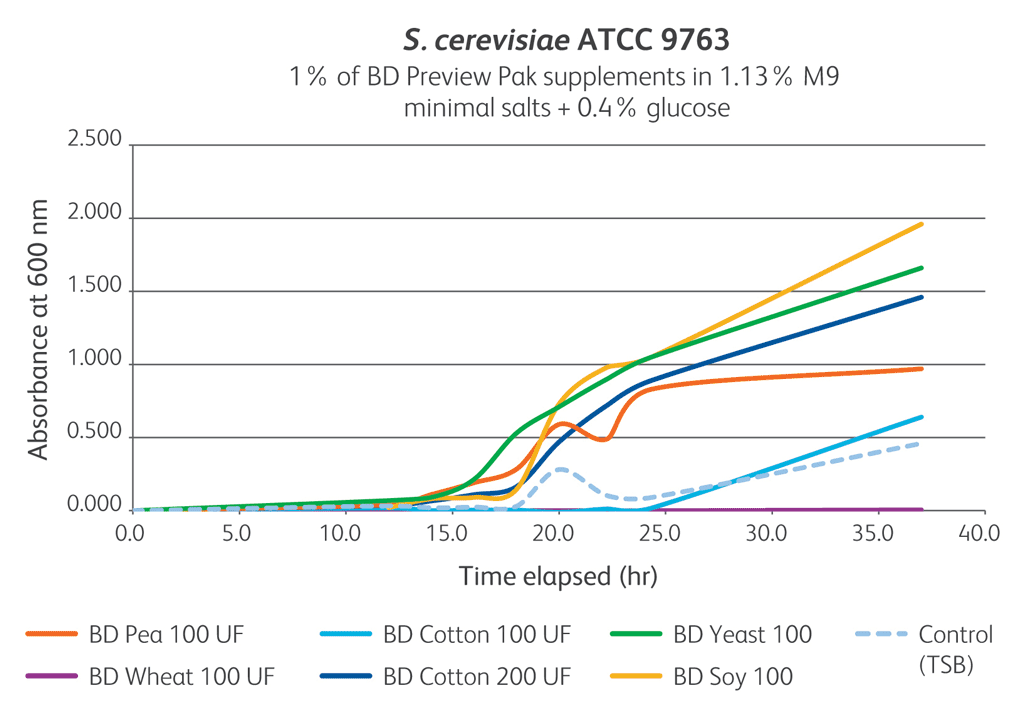
Figure 2: Microbial culture performance for Preview Pak Components
Summary
BD Life Sciences was able to develop six unique peptones that are included in a BD™ Peptone Preview Pak. The animal-free peptones, which include cotton, pea, wheat, soy and yeast provide unique nutritional profiles for both mammalian and microbial cell culture applications. This process involved rigorous evaluation and development of physical, analytical, and performance characteristics to result in highly consistent alternative animal-free peptone products.
Please see the poster for more information and the full set of data:
